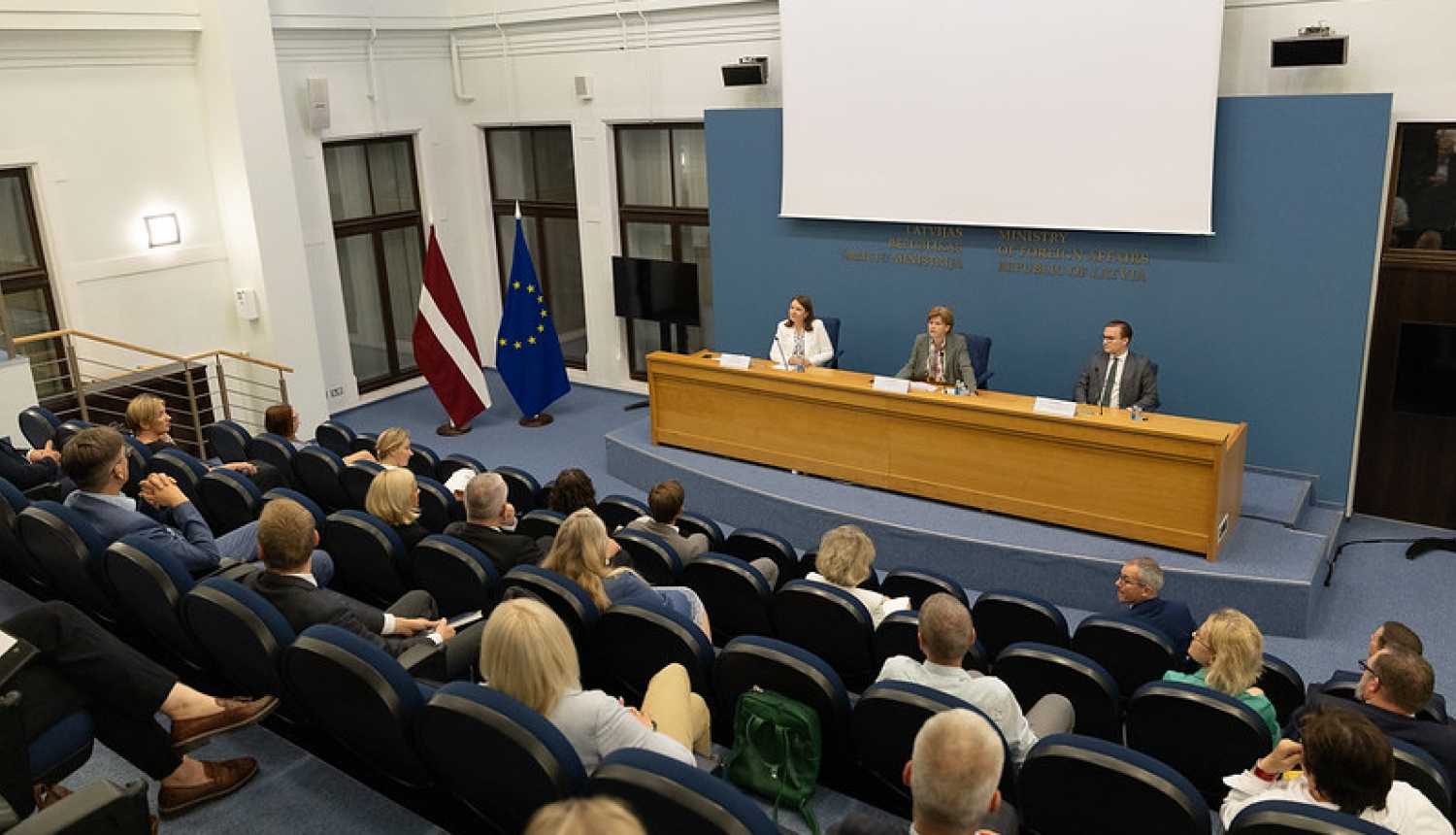The new rounds of EU sanctions against Russia and Belarus, their effective enforcement in order to minimise Russia’s ability to escalate its war against Ukraine, the need to sooner break economic ties with these countries – those were central issues discussed by the Minister of Foreign Affairs, Baiba Braže, at the meeting of the Sanctions Coordination Council.
“Latvia consistently advocates as broad as possible and robust EU sanctions against Russia in order to reduce its military capacity and increase the price it will have to pay for its war. It is in Latvia’s security interests to reduce economic dependence on Russia and Belarus. Strengthening EU sanctions is a constant effort and work is currently under way at EU level, in parallel with further expansion of sanctions, to effectively enforce the sanctions already adopted and reduce their circumvention,” Foreign Minister Baiba Braže underlined at the Sanctions Coordination Council.
The Foreign Minister emphasised that, by adoption of the eighth round of sanctions against Belarus, important steps have been taken to align the sanctions imposed on Russia and Belarus, and to reduce loopholes and prevent attempts to circumvent the sanctions.
She also said that other ministries and supervisory bodies were also involved in work on the 14th round of sanctions targeting Russia: in the process of developing new sanctions, they came up with proposals, several of which were included in the new round of restrictive measures. The Minister also explained that in order to maximise the uniform implementation and application of EU sanctions, the Latvian Foreign Ministry is actively cooperating in the Baltic and Nordic cooperation formats by coordinating joint work at the level of sanctions experts, financial supervisors and customs authorities, as well as with non-EU partner countries.
At the Council, the Foreign Minister stressed that a new line of sanctions is to restrict the activities of Russia’s “shadow fleet” in the Baltic Sea. The Minister confirmed that the Foreign Service will continue to work in the EU system in order to achieve the broadening of those sanctions; however, the involvement of other institutions is also highly important, as well as support from the sector so as to eliminate collaboration of Latvian companies with “shadow fleet” vessels, which pose a threat to the environment and safety of the Baltic Sea.
At the meeting of the Sanctions Coordination Council on Thursday, 18 June, the Deputy Head of the Financial Intelligence Unit, Paulis Iļjenkovs presented the current typology for violation of sanctions and their circumvention.
The Minister of Foreign Affairs Baiba Braže invited the participants of the Sanctions Coordination Council meeting to engage in further constructive cooperation, including proposals for new sanctions against Russia and Belarus.
The Minister emphasised that in the run-up to the 6th evaluation round by the Committee of Experts on the Evaluation of Anti-Money Laundering Measures and the Financing of Terrorism (MONEYVAL), which will assess, among other things, Latvia’s effectiveness in the fields of targeted financial sanctions against the financing of terrorism and proliferation, it is important to demonstrate Latvia’s excellence in the area of enforcement of sanctions.
Further information on sanctions-related topics is available on the “Sanctions” section of the Foreign Ministry website. To receive regular information of latest developments related to sanctions, please sign up for updates by sending a request to the Foreign Ministry’s informational e-mail address: sankcijas@mfa.gov.lv.
About the Sanctions Coordination Council
The Sanctions Coordination Council is a consultative body established by the Cabinet with the aim of coordinating the functioning of supervisory institutions responsible for the enforcement of international sanctions and national sanctions of the Republic of Latvia. The Sanctions Coordination Council is chaired by a representative from the Ministry of Foreign Affairs.
The Council membership comprises more than 30 public and private sector institutions.
The Council gathered for its 14th meeting on Thursday, 18 July.





